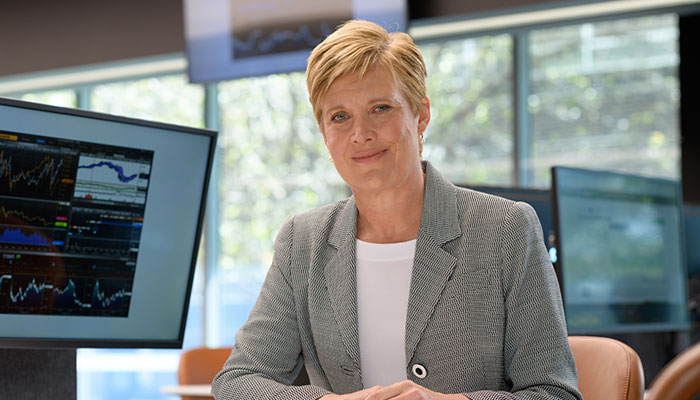Open Banking is about to do to the ‘Big Four’ banks what Afterpay did to the credit card companies. That’s good news for long-suffering customers, say researchers from Macquarie Business School.
In early 2018, the then Treasurer Scott Morrison warned a bankers’ conference that, “Open banking will revolutionise the financial services sector, completely transforming the way Australians interact with the banking system by giving consumers the right to share their data with other banks, other institutions and innovative fintechs, and get themselves a better deal.”
The revolution Morrison heralded is finally about to arrive. As of July 1, all banks (not just the major ones) had to be “open banking ready”. By February 1, 2022, all banks will need to offer “full data transfer for consumers”.
Australians are now free to share the financial data their bank has collected on them. However, many financial services organisations are still arranging to become ‘Accredited Data Recipients’ – that is, legally permitted to receive financial data from potential customers.
Nonetheless, Macquarie Business School’s Professor Elizabeth Sheedy and Dr Lurion De Mello expect the Open Banking rubber to start hitting the road over the latter half of 2021
“Australians in the market for, say, a car loan will soon be able to go to a comparison site,” De Mello forecasts. “With the push of a button, they will be able to consent to lots of car-loan-providing financial institutions being sent the financial data their bank has collected about them.
“Within seconds, all those car-loan-providers will be able to ascertain the applicant’s creditworthiness and make personalised loan offers. The comparison site will then display the best-value offers and the person will make a selection.”
This will be particularly useful for younger people who haven’t previously borrowed money, but who do have a record of transactions that suggests they will be able to pay back their debts.
In the scenario above, consumers rather than financial institutions will finally have the whip hand, Sheedy notes. “Within a minute or two, with a few taps on a keyboard, we’ll all be able to access the best deals available on any imaginable financial product,” she says.
Get excited
Despite its transformative promise, Open Banking is yet to generate much media coverage or attract much public attention.

Game changer: Professor Elizabeth Sheedy says Open Banking will bring competition to “what has long been a cosy oligopoly.”
Sheedy, a risk governance expert in the Department of Applied Finance, finds it odd that Australians, notorious for their cynicism about banks, aren’t more excited.
“Open Banking will bring a lot more competition to what has long been a cosy oligopoly,” Sheedy says. “The Big Four – ANZ, the Commonwealth Bank, NAB and Westpac – still dominate the market. Partly for that reason, Australians have long believed that there is little point changing banks because all the banks are much the same.”
Sheedy argues the friction-free comparison shopping Open Banking facilitates will be game changing.
“If someone needs a personal loan, or credit card, or mortgage, the simplest option is to deal with their current bank,” she says.
“Australians can and do shop around for financial products. But most of us don’t want to go through the bother of filling out lots of forms and supplying documentation such as tax returns and payslips to prove our creditworthiness to a financial institution that, unlike our bank, doesn’t have any of our financial data.
“Banks know their customers are ‘sticky’, which has bred complacency.”
Axing the laziness tax
De Mello, a Senior Lecturer in the Department of Applied Finance, believes Open Banking will impact everyday Australians much the same way Buy Now Pay Later (BNPL) did.

Tech-savvy generation: Dr Lurion De Mello says the British experience suggests younger Australians will embrace then evangelise about Open Banking.
“For decades, credit-card providers earned huge profits offering their customers unsecured credit at usurious rates of interest,” De Mello says.
“There was competition, in the sense you could switch from a card with an 18 per cent interest rate and Flybuys points to one with 16 per cent interest rate without Flybuys points.
“But it was a racket based on the ‘laziness tax’. That is, the price consumers pay for being loyal to a provider rather doing the legwork needed to get a better deal.”
Once Australians could access interest-free credit, the racket inevitably started to collapse.
“Australians didn’t, en masse, cut up their credit cards and sign up to Afterpay in 2015,” De Mello says.
“A handful of tech-savvy young people who didn’t have long-term relationships with big financial institutions experimented with BNPL. They discovered interest-free loans for transactions up to the value of $1500 were a better fit than exorbitant credit card interest on similar credit limits.
“The world slowly started to change and eventually the likes of American Express were having to offer their customers a BNPL option.”
The British experience suggests younger Australians will similarly embrace then evangelise about Open Banking.
“After the UK introduced Open Banking, the baby boomers and, to a lesser extent, gen Xers, remained ‘sticky’,” De Mello says. “That is, they stuck with the industry incumbents and the traditional way of banking.”
But younger Brits have flocked to digital ‘neobanks’, such as Monzo, Starling and Revolut.
Says De Mello: “These neobanks have captured market share by, firstly, leveraging technology to offer their customers a better user experience and, secondly, offering competitively priced financial products.”
Professor Elizabeth Sheedy is a risk governance expert based in the Department of Applied Finance of Macquarie Business School.
Dr Lurion De Mello is a Senior Lecturer in the Department of Applied Finance at the Macquarie Business School.
RESEARCHERS: Professor Elizabeth Sheedy; Dr Lurion De Mello
WRITER: Nigel Bowen
FACULTY: Macquarie Business School